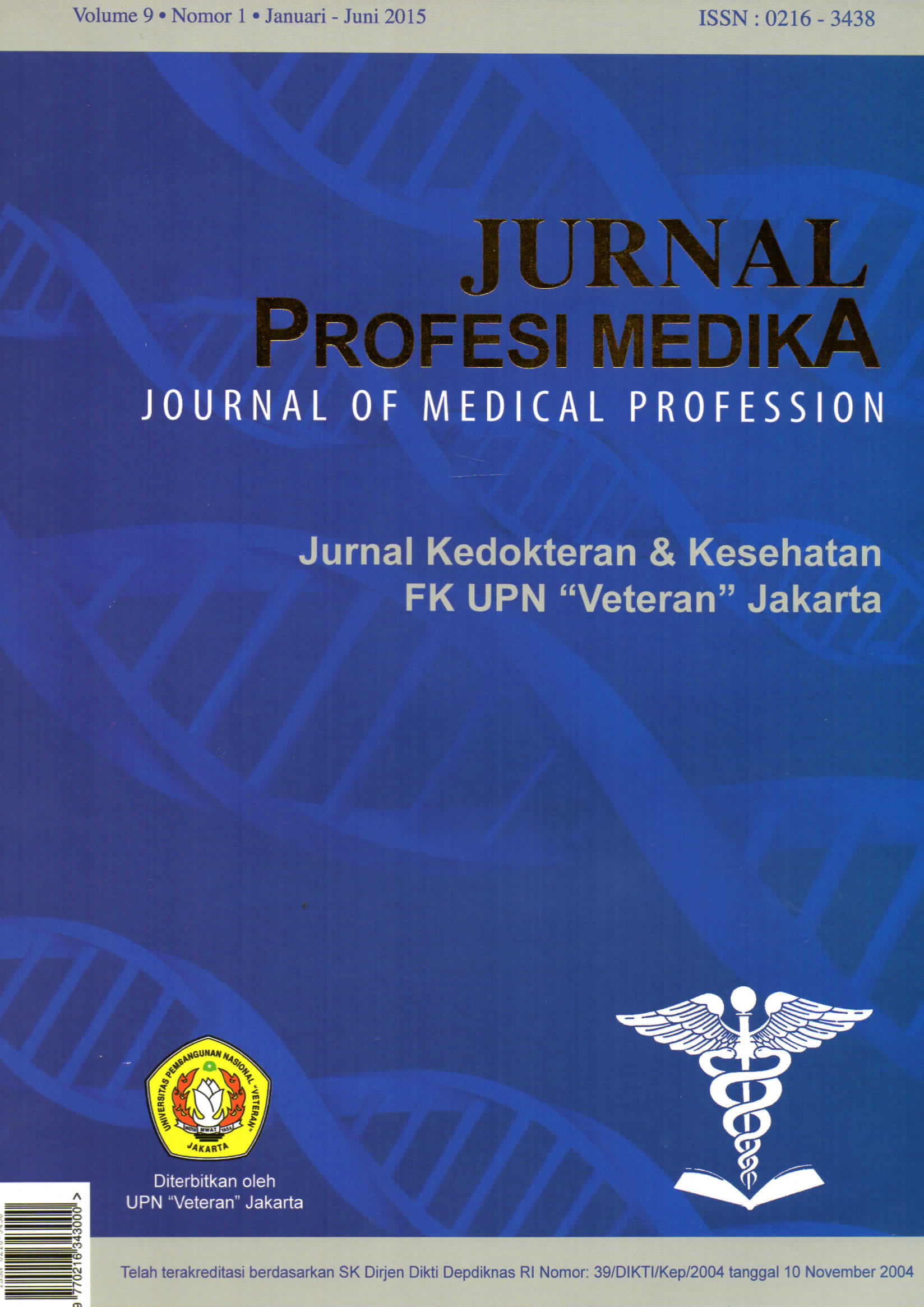PERBANDINGAN EFEKTIVITAS ANTARA MINYAK CENGKEH (Syzigium aromaticum) DAN LARUTAN OBAT KUMUR YANG MENGANDUNG DAUN SIRIH DALAM MENGHAMBAT PERTUMBUHAN MIKROORGANISME PEMBENTUK PLAK GIGI SECARA IN VITRO
DOI:
https://doi.org/10.33533/jpm.v9i1.825Keywords:
Antimikroba, Syzigium aromaticum, Streptococcus mutans, Tanaman cengkehAbstract
Dental plaque is formed by colony of bacteria attached to the tooth’s smooth surface. Plaque on the tooth caused by the type of food consumed and the activity of thousands of microorganisms. The main microorganisms that forming dental plaque is Streptococcus mutans. If plaque is not removed daily by brushing it will become a hard tartar. Dental plaque can be removed by brushing or flossing between teeth or use mouthwash solution containing antimicrobial agents. One of the types of plant that has the ability to inhibit and kill the microorganisms is clover (Syzigium aromaticum). The aim of this study is to determine the effectiveness of bioactive compounds contained in clove oil isolated microorganisms from dental plaque and the compared with the mouthwash solution containing betel leaf in inhibiting the growth of the bacteria. This study was an experimental research approach post test only control group design with 40 isolates of dental plaque bacteria samples which were selected to find out the type of S.mutans. The result showed that clove oil concentration of 10%; 20%; 30%; dan 40%, have the ability to inhibit S. mutans as well as the other 39 isolates of dental plaque dental bacteria. Based on the analysis of data from the one-way ANOVA test showed significance of 0.05 which means there was no significant difference in the inhibition of clove oil againts dental plaque bacteria isolates of S. mutans and the other 30 isolates of dental plaque in various concentrations.
References
Wirayuni KA. Plaque Control. Jurnal Kedokteran Gigi Mahasaraswati. Denpasar. 2003; 1(1).
Contreras D, et al. spaP Gene of Streptococcus mutans in Dental Plaque and its Relationship with Early Childhood Caries. African Journal of Microbiology Research. 2011; 4(11): 1051-1056.
Towaha Juniaty. Manfaat Eugenol Cengkeh dalam Berbagai Industri di Indonesia. 2012; 11(2): 79-90. ISSN: 1412-8004.
Babpour Ebrahim, S. Abdolhamid Angaji dan S. Mahdi Angaji. Antimicrobial Effect of Four Medicinal Plants on Dental Plaque. Journal of Medicinal Plants Research. 2009; 3(3): 132-137.
Sukandar Dede, et al. Karakterisasi Senyawa Aktif Antibakteri Minyak Atsiri Bunga Cengkeh (Syzigium aromaticum). JKTI. 2010; 12(1).
Tahmourespour Arezoo, et al. Biofilm Formation Potential of Oral Streptococci in Related to Some Carbohydrate Substrates. African Journal of Microbiology Research. 2010; 2(11): 1050-1055.
Downloads
Published
How to Cite
Issue
Section
License
Copyright Notice
All articles submitted by the author and published in the Jurnal Profesi Medika : Jurnal Kedokteran dan Kesehatan, are fully copyrighted by the publication of Jurnal Profesi Medika : Jurnal Kedokteran dan Kesehatan under the Creative Commons Attribution-NonCommercial 4.0 International License by technically filling out the copyright transfer agreement and sending it to the publisher
Note :
The author can include in separate contractual arrangements for the non-exclusive distribution of rich versions of journal publications (for example: posting them to an institutional repository or publishing them in a book), with the acknowledgment of their initial publication in this journal.
Authors are permitted and encouraged to post their work online (for example: in an institutional repository or on their website) before and during the submission process because it can lead to productive exchanges, as well as earlier and more powerful citations of published works. (See Open Access Effects).



